Description
Name in North American Boletes: Suillus cavipes
Genus: Suillus
Species: ampliporus
- Species 2: cavipes
Common Name: “Hollow Stalked Larch Bolete”
- Common Name 2: “Hollow Stalked Tamarack Jack”
Tells: Dense hairs on brown cap make a velvety texture. Stem is hollow in the bottom half, yellow on the oft-netted upper part, & often has a ring. Pores are often huge & elongated.
Other Information: Likes larch, & often found in wet or even boggy soil.
Science Notes: Most books will refer to this as Suillus cavipes, but that is a European name and DNA testing has shown that North America’s version is a different species.
Edibility: Good.
CHEMICAL TESTS:
- NH4OH (Ammonia): Cap skin turns red.
- KOH: Cap skin turns black.
- FeSO4 (Iron Salts): Cap skin has no reaction.
Links:
 |
583 |  |
0 |  |
233
(cavipes) |
 |
326
(cavipes) |

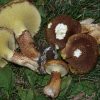
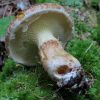
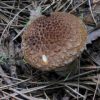
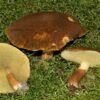
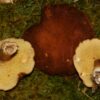
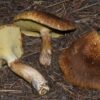
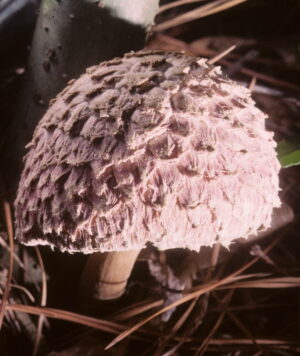
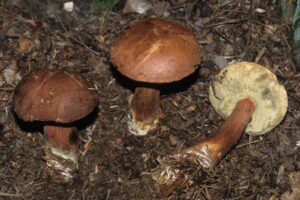
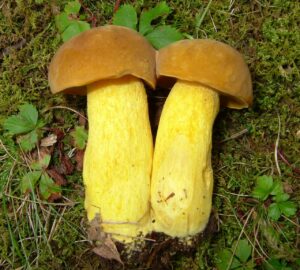
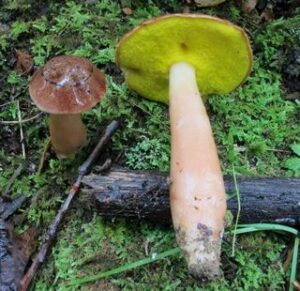
Got something to discuss?
Harvested in autum/fall. They seemed to behave well in terms of staining. So we took a “chance” after more reading and notes kind folks left. A little degradation upon trimming and peeling caps if rinsed. Non rinsed seemed to hold up better during meal prep. We made a non dairy Alfredo sauce linguine with garden green beans. We also pan fried the fattest find, as slices of cap (like you might a store bought sliced portobello). Peeled caps (labor intensive) per notes. Cook for some time to brown on lower and medium heat (again per notes). For the Alfredo sauce we added dried spring Ramaria to bolster mushroom flavor as these do turn out as a mild mushroom.